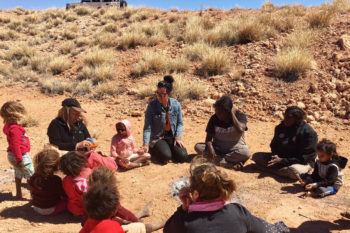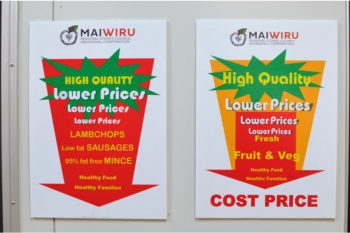Cost and affordability of healthy, equitable and more sustainable diets, and store food environments, in the APY Lands
Poor diet is a leading cause of preventable disease and premature death. Traditionally, Anangu ate bush foods and were
healthy and strong, but now there are too many unhealthy food and drinks on the APY Lands. So Anangu are at increased
risk of obesity and diet-related diseases.


